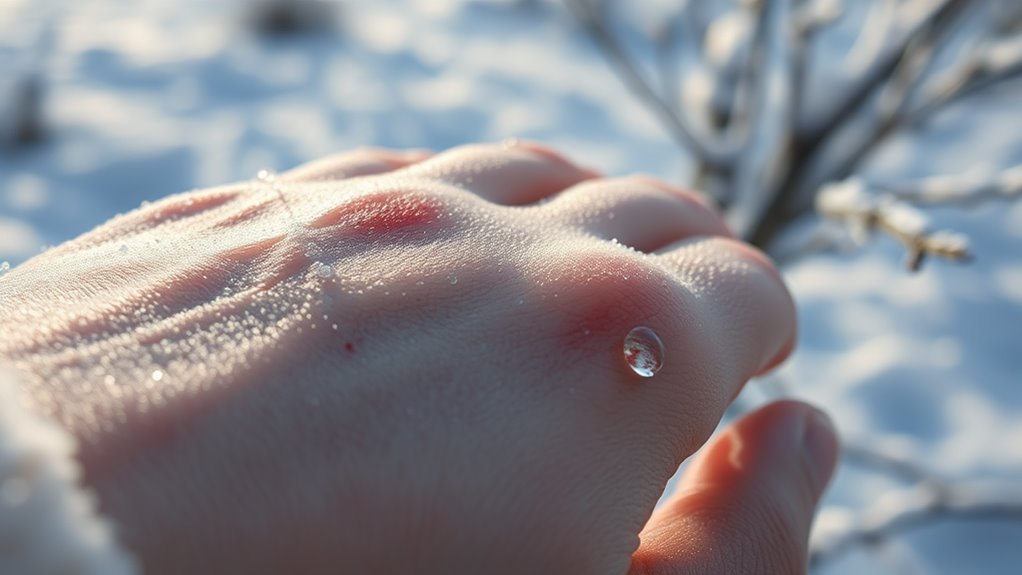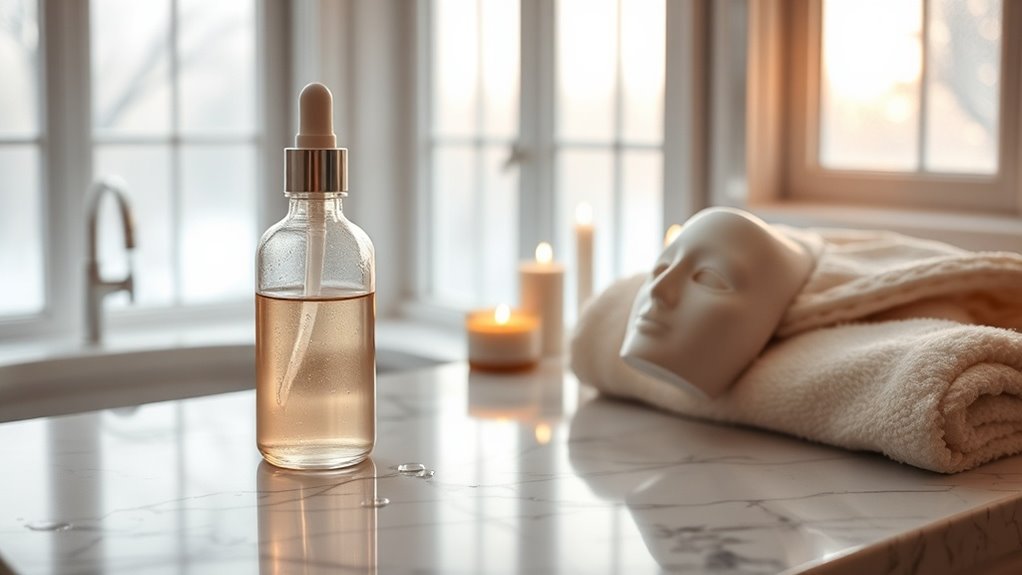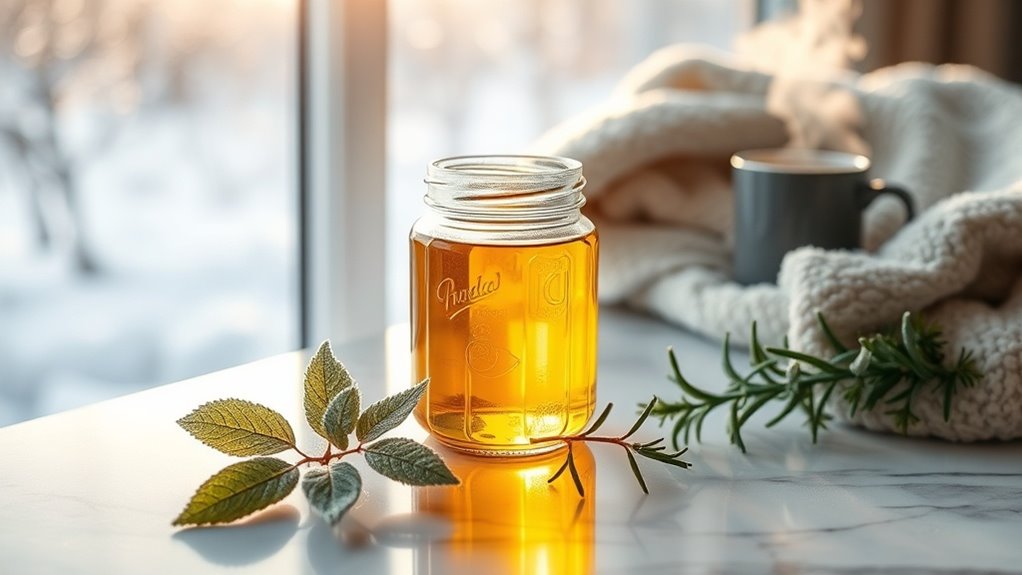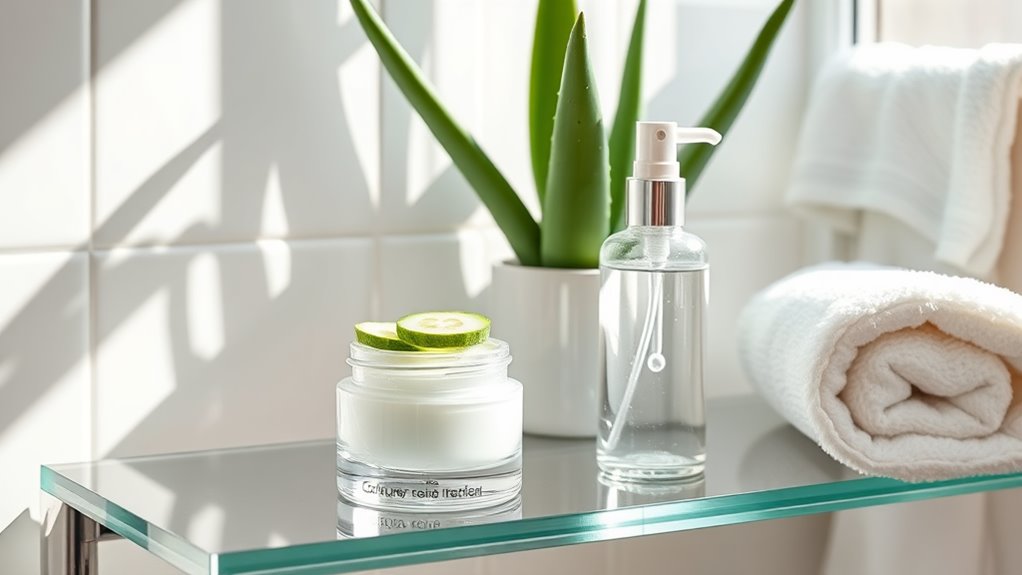How Cold Weather Secretly Wrecks Your Skin Barrier
Cold weather can significantly weaken your skin barrier without you even realizing it. As temperatures drop, your skin loses moisture rapidly, leading to dryness and increased sensitivity. Compounding this issue, indoor heating can create an environment that further strips your skin of its natural defenses. Understanding the intricate ways in which cold affects your skin and recognizing the signs can be crucial for maintaining its health. It’s essential to consider the protective measures you can take.
The Role of the Skin Barrier
The skin barrier serves as your body’s first line of defense against environmental aggressors, pathogens, and moisture loss. This protective layer is crucial in maintaining your skin’s overall health and function.
When cold weather strikes, it challenges your skin barrier, leading to increased transepidermal water loss and resulting dryness. You might notice cold weather skin issues such as flakiness, irritation, and tightness.
Your skin’s natural oils, which help to retain moisture, can diminish under harsh conditions, making it essential to protect and restore the barrier. Regularly applying moisturizers that support barrier function and actively avoiding cold wind exposure can bolster your skin’s resilience. Additionally, properly caring for the skin barrier is vital for preventing damage and promoting overall skin health.
Effects of Cold Weather on Skin
Cold weather can significantly impact your skin, leading to a range of issues that compromise its integrity and functionality.
Lower temperatures decrease humidity levels, which can lead to transepidermal water loss. This results in dryness, making your skin feel tight and flaky. Moreover, the cold can impair blood circulation, limiting nutrient delivery to skin cells.
The skin’s barrier becomes less effective, increasing vulnerability to irritants and allergens. Additionally, exposure to cold air can provoke inflammatory responses, exacerbating conditions like eczema or psoriasis.
As you adjust to colder months, you may notice a decline in skin elasticity and increased roughness — both indicative of a compromised skin barrier. Protecting your skin from cold weather is essential for maintaining its health and resilience.
Common Skin Issues Caused by Cold Temperatures
As temperatures drop, various skin issues can emerge, leaving you vulnerable to discomfort and irritation.
One common problem you may encounter is dryness. Cold air lacks moisture, stripping your skin of its essential hydration. This can lead to flakiness, tightness, and even cracking.
Another issue is chapping, particularly on exposed areas like your lips and hands, where the skin barrier is thinner. Additionally, you might notice an increase in redness or irritation due to the harsh elements. For those with existing skin conditions, such as eczema or psoriasis, cold weather can exacerbate symptoms.
Furthermore, hidden causes of dry skin like indoor heating and low humidity can also contribute to these issues. Recognizing these issues early on can help you take preventive measures to protect and maintain your skin’s integrity during winter months.
Lifestyle Habits That Compound Skin Damage
Indoor heating can significantly strip moisture from the air, leaving your skin vulnerable to dryness and irritation. If you’re skipping your moisturizer routine, you’re compounding these effects, further diminishing your skin barrier. Environmental factors like harsh weather can exacerbate these issues, making it even more crucial to address your lifestyle habits for maintaining skin health during colder months.
Indoor Heating Effects
Heating systems can significantly lower indoor humidity levels, leading to dry air that strips moisture from your skin. This dry environment exacerbates skin barrier problems, increasing the risk of irritation and rough texture. Understanding the heating effects on your skin can help mitigate damage.
| Factor | Effect on Skin | Suggested Action |
|---|---|---|
| Low Humidity | Strips moisture | Use a humidifier |
| High Temperature | Increases oil evaporation | Lower thermostat setting |
| Long Exposure | Dehydration | Take breaks outside |
| Air Circulation | Speeds moisture loss | Keep skin covered |
| Hot Air | Weakens skin barrier | Apply hydrating products |
Skipping Moisturizer Routine
Skipping your moisturizer routine can significantly worsen skin damage, especially in cold weather.
The cold air and indoor heating strip moisture from your skin, leading to a compromised barrier. When you neglect moisturizer, you expose your skin to a range of issues that can accelerate damage:
-
Increased Dryness: Without hydration, your skin becomes rough and flaky, making it less resilient.
-
Impaired Barrier Function: A lack of moisture prevents your skin from effectively protecting against environmental aggressors, leading to irritation.
-
Accelerated Aging: Dehydrated skin can promote fine lines and worsen the appearance of wrinkles.
Consistently applying moisturizer creates a protective shield, locking in hydration and maintaining your skin’s integrity.
Don’t let cold weather compromise your skin’s health.
Protective Measures for Your Skin
As temperatures drop, ensuring your skin barrier remains intact becomes essential for maintaining its health. To achieve this, you must implement protective measures that fortify your skin against cold weather challenges.
| Measure | Description |
|---|---|
| Hydrate | Drink plenty of water to maintain skin moisture. |
| Apply Heavy Moisturizer | Use a thick moisturizer to create a protective seal. |
| Use Humidifiers | Add moisture to indoor air to combat dryness. |
Consistently applying these protective strategies will help your skin retain its barrier function, reducing the risk of irritation and sensitivity that often accompanies cold weather. Additionally, following a proper skincare regimen can significantly improve hydrating dry skin and ensure your skin can effectively defend itself during harsh conditions. Prioritize your skincare regimen to ensure your skin can effectively defend itself during harsh conditions.
Recovery Tips for a Healthy Skin Barrier
When temperatures plummet, your skin barrier can suffer significant damage, leading to dryness and irritation.
To restore its health, consider these recovery tips:
-
Hydrate: Drink plenty of water to maintain hydration from within. Consider a humidifier to add moisture to your environment.
-
Moisturize: Use a rich, emollient moisturizer containing ingredients like ceramides or hyaluronic acid. Apply it right after cleansing when your skin is still damp.
-
Limit Hot Showers: Hot water can strip vital oils from your skin. Opt for lukewarm water and limit your shower time to prevent further drying.
Implementing these strategies can fortify your skin barrier against cold weather, keeping dryness and irritation at bay. Additionally, persistent dryness can often be exacerbated by factors such as harsh weather conditions or inadequate skincare routines.
Prioritize your skin’s health for better protection overall.




